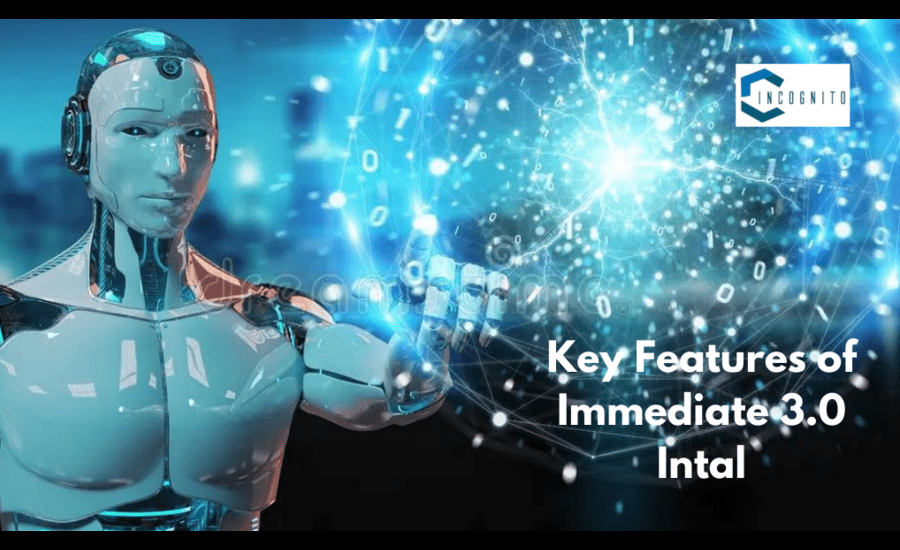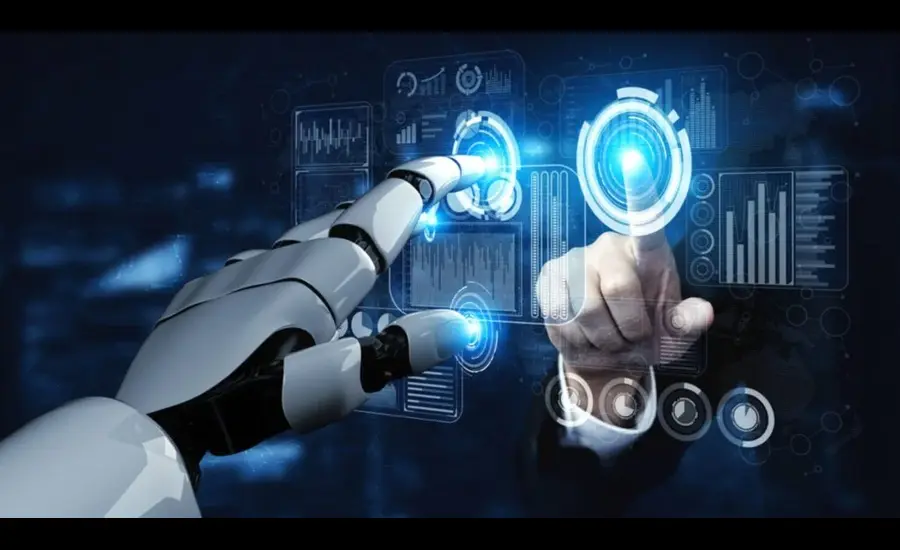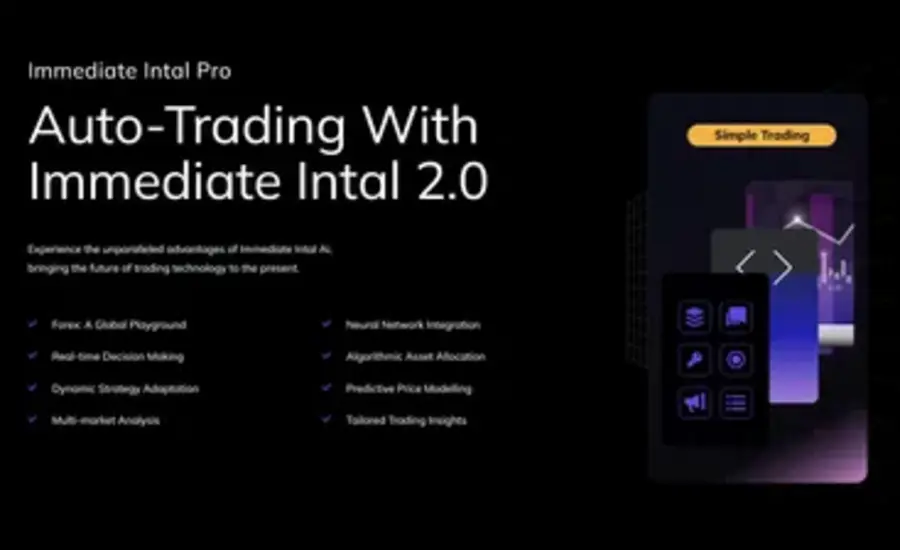Immediate 3.0 Intel: The Integration of AI and Its Impact on Society
The third wave of artificial intelligence, or AI 3.0, has become a pivotal moment in human history, dramatically shaping the future of industries, societies, and individual lives. This new evolution, referred to as Immediate 3.0 Intal, encapsulates the rapid, on-demand integration of advanced AI technologies into everyday processes. Immediate 3.0 AI moves beyond previous generations by incorporating real-time data processing, self-learning algorithms, and hyper-personalization, leading to more profound changes than were ever possible before. With AI becoming a critical part of global systems, its influence stretches across various dimensions—economic, social, ethical, and political. This article explores the rise of Immediate 3.0 AI, its foundational mechanisms, and the ripple effects it is creating throughout society.
Understanding Immediate 3.0 AI: A Shift from Earlier Generations
AI’s progression can be classified into distinct phases. The first wave, or AI 1.0, was based on simple rule-based systems that could perform narrowly defined tasks. These early AIs, while impressive in their ability to process information faster than humans, were limited in scope. AI 2.0 marked the integration of machine learning and neural networks, enabling computers to learn from data and make predictions or decisions with a degree of accuracy that surpassed earlier attempts. However, the AI systems of this period still required significant human intervention for training, refinement, and correction.
Immediate 3.0 Intal AI represents a paradigm shift, leveraging the power of real-time data, autonomous decision-making, and context-aware processing. The rise of Immediate 3.0 is distinguished by its ability to provide instant responses, its adaptability to new and unforeseen situations, and its seamless integration into systems that rely on live, dynamic information. The foundational pillars of this wave are deep learning algorithms, natural language processing (NLP), advanced robotics, and the increasing sophistication of neural networks, which allow AI systems to mimic human cognition more effectively than ever before. What makes Immediate 3.0 truly revolutionary is its capacity to learn on the go, operate independently, and deliver instantaneous solutions across various industries, including healthcare, finance, education, and entertainment.
In addition, Immediate 3.0 AI is bolstered by the exponential growth of data, as more devices, platforms, and systems become interconnected through the Internet of Things (IoT). This interconnectedness allows AI systems to process vast amounts of data at speeds that were unimaginable just a decade ago, leading to more nuanced and accurate outputs. Immediate 3.0 thus brings AI from the domain of possibility into that of everyday necessity, making it indispensable for businesses, governments, and individuals alike. But with its integration into all aspects of life, Immediate 3.0 AI also raises significant questions about its impact on jobs, social structures, privacy, and the ethical considerations that accompany its wide-scale use.

The Economic Impact of Immediate 3.0 AI: Transformation Across Industries
The integration of Immediate 3.0 AI is reshaping the global economy at an unprecedented pace. In nearly every industry, AI’s presence is creating new opportunities for innovation and efficiency, while also posing challenges that need careful management. In the manufacturing sector, for instance, Immediate 3.0 AI is revolutionizing production lines through the use of AI-driven robotics, predictive analytics, and real-time quality control. Factories that once relied on human labor for routine tasks are now transitioning to fully automated systems capable of working 24/7 without fatigue or error. The deployment of AI in manufacturing has drastically reduced downtime and increased productivity, enabling companies to meet the growing demand for goods in a faster, more cost-effective manner.
In the healthcare sector, Immediate 3.0 Intal AI is having a profound impact on diagnostics, treatment planning, and patient care. AI-powered tools are capable of analyzing medical data with incredible precision, identifying patterns that may be missed by human practitioners, and offering personalized treatment recommendations based on a patient’s unique medical history. AI systems can even predict potential health risks by analyzing genetic information, lifestyle factors, and environmental conditions. The ability of Immediate 3.0 AI to process and interpret complex medical data in real-time has the potential to revolutionize healthcare delivery, making it more proactive, personalized, and efficient.
Financial services are also undergoing significant transformations due to the rise of Immediate 3.0 AI. Banks and financial institutions are using AI algorithms to detect fraud, assess credit risk, and streamline trading processes. AI’s ability to analyze vast amounts of financial data and make decisions within milliseconds is enabling traders to capitalize on market fluctuations more effectively than ever before. Moreover, AI-driven chatbots and virtual assistants are enhancing customer service by providing immediate, accurate responses to customer queries, thus improving the overall customer experience while reducing operational costs.
However, the economic impact of Immediate 3.0 AI is not without challenges. The automation of tasks traditionally performed by humans is leading to job displacement in certain sectors, particularly those involving repetitive, routine tasks. While AI creates new job opportunities in fields such as data science, AI engineering, and cybersecurity, there is growing concern that workers in lower-skilled roles may be left behind, exacerbating income inequality. Policymakers and industry leaders must collaborate to develop strategies for reskilling and upskilling the workforce to ensure that individuals can thrive in an AI-driven economy.
The Role of Immediate 3.0 AI in Education: A New Frontier
Education is undergoing a profound transformation due to Immediate 3.0 AI, which is enabling personalized learning experiences, enhancing administrative processes, and democratizing access to quality education. Traditional education models, characterized by one-size-fits-all approaches, are increasingly being supplemented by AI-driven tools that adapt to the unique needs, learning styles, and paces of individual students. Immediate 3.0 AI is making it possible for educators to deliver tailored content that meets students where they are, allowing for more effective and engaging learning experiences.
One of the most significant contributions of Immediate 3.0 AI to education is the development of intelligent tutoring systems (ITS). These AI-powered platforms provide students with personalized feedback and guidance, helping them to grasp difficult concepts and improve their academic performance. ITS systems can monitor a student’s progress in real-time, identifying areas of weakness and offering targeted exercises to address those challenges. By leveraging the power of AI, educators can ensure that no student falls behind, regardless of their initial level of proficiency.
Moreover, Immediate 3.0 AI is streamlining administrative tasks within educational institutions. From automating the grading process to managing student records, AI is reducing the administrative burden on educators, allowing them to focus more on teaching and student interaction. Additionally, AI is playing a crucial role in enhancing accessibility for students with disabilities. For example, AI-powered speech recognition and translation tools are making it easier for students with hearing impairments or language barriers to engage with educational content.
However, the widespread adoption of AI in education also raises concerns about data privacy and the digital divide. As educational institutions increasingly rely on AI-driven platforms, they must ensure that students’ personal data is protected from breaches and misuse. Additionally, there is a risk that students in underserved communities may be left behind if they lack access to the necessary technology and internet connectivity to benefit from AI-enhanced learning tools.

Immediate 3.0 Intal AI and the Future of Work: Opportunities and Challenges
As Immediate 3.0 AI continues to integrate into the workforce, it is fundamentally reshaping how work is performed across various industries. Automation, augmented intelligence, and AI-powered tools are enabling organizations to streamline operations, enhance decision-making, and improve productivity. However, the integration of AI into the workplace also presents several challenges that must be addressed to ensure a smooth transition for workers.
One of the key advantages of Immediate 3.0 AI in the workplace is its ability to automate repetitive, low-value tasks, freeing up human workers to focus on more creative, strategic, and complex activities. For example, in the field of customer service, AI-powered chatbots and virtual assistants are handling routine inquiries, allowing human agents to concentrate on resolving more nuanced and challenging customer issues. In the realm of marketing, AI algorithms are analyzing vast amounts of consumer data to identify trends and personalize marketing campaigns, resulting in more effective outreach and higher conversion rates.
However, the rise of AI in the workplace has also led to concerns about job displacement, particularly in industries that rely heavily on manual labor or routine tasks. While Immediate 3.0 AI is creating new opportunities in fields such as data analysis, machine learning, and AI development, workers in industries such as manufacturing, retail, and transportation are at risk of losing their jobs to automation. To mitigate the impact of AI-driven job displacement, governments and businesses must invest in reskilling and upskilling programs to help workers transition to new roles in the digital economy.
The future of work in an AI-driven world will likely be characterized by a hybrid model, in which humans and machines collaborate to achieve greater efficiency and innovation. As AI takes over routine tasks, human workers will need to focus on skills that cannot easily be automated, such as creativity, emotional intelligence, critical thinking, and problem-solving. Moreover, businesses will need to prioritize fostering a culture of continuous learning and adaptability to ensure that employees can thrive in an ever-evolving technological landscape.
Ethical and Social Considerations of Immediate 3.0 Intal AI: Navigating Complexities
The rise of Immediate 3.0 AI brings with it a host of ethical and social considerations that must be carefully navigated to ensure the responsible development and deployment of AI technologies. As AI systems become more autonomous and capable of making decisions with minimal human intervention, questions surrounding accountability, transparency, and fairness become increasingly important.
One of the primary ethical concerns associated with Immediate 3.0 AI is the potential for bias in AI algorithms. AI systems are only as unbiased as the data they are trained on, and if that data contains implicit biases—whether related to race, gender, or socioeconomic status—those biases can be perpetuated and even amplified by the AI. For example, in the context of hiring algorithms, AI systems that are trained on historical hiring data may inadvertently discriminate against certain groups if the data reflects past biases. To address this issue, it is crucial for AI developers to prioritize fairness and inclusivity in the design and training of AI systems, ensuring that they are tested for bias and regularly audited for fairness.
Another ethical concern is the issue of accountability. As AI systems take on more decision-making responsibilities, it becomes less clear who is responsible when something goes wrong. In cases where AI algorithms make decisions that have significant consequences—such as in healthcare, law enforcement, or autonomous vehicles—there must be clear frameworks for accountability. Policymakers and industry leaders must work together to establish regulations that ensure that AI systems are held to the same standards of accountability as human decision-makers.
Furthermore, the rise of Immediate 3.0 AI raises questions about the societal implications of widespread automation. As AI takes over tasks that were once performed by humans, there is a risk that income inequality could worsen if the benefits of AI-driven productivity are not equitably distributed. To ensure that the economic benefits of AI are shared broadly, governments and businesses must work together to create policies that support inclusive growth, such as tax incentives for companies that invest in AI-driven innovation and job creation.

The Future of Immediate 3.0 Intal AI: Opportunities for Society
The potential benefits of Immediate 3.0 AI are vast and multifaceted. By harnessing the power of AI, society has the opportunity to solve some of its most pressing challenges, from climate change to healthcare access. However, realizing the full potential of AI will require careful planning, collaboration, and ethical considerations to ensure that AI technologies are developed and deployed in ways that benefit all of humanity.
In the realm of healthcare, for example, Immediate 3.0 AI has the potential to revolutionize how diseases are diagnosed, treated, and prevented. AI algorithms can analyze medical data at unprecedented speeds, identifying patterns that may be missed by human doctors and providing more accurate diagnoses. Furthermore, AI-driven drug discovery could accelerate the development of new treatments for diseases that have long eluded researchers, offering new hope to patients around the world.
In the fight against climate change, Immediate 3.0 AI can be used to optimize energy use, reduce waste, and develop more sustainable solutions. For example, AI algorithms can be used to model the effects of different environmental policies, helping policymakers make more informed decisions about how to reduce greenhouse gas emissions and mitigate the impacts of climate change. Additionally, AI-powered systems can be used to monitor and manage natural resources more effectively, ensuring that they are used in a way that promotes long-term sustainability.
However, the future of Immediate 3.0 AI will also depend on how well society navigates the ethical and social challenges that accompany its widespread adoption. Governments, businesses, and civil society organizations must work together to establish frameworks that ensure that AI is developed and deployed in ways that are transparent, accountable, and fair. By fostering a culture of responsibility and inclusivity, society can ensure that the benefits of Immediate 3.0 AI are shared broadly and that its potential is harnessed for the greater good.
Conclusion
Immediate 3.0 AI represents a significant milestone in the evolution of artificial intelligence, offering new opportunities for innovation, efficiency, and societal progress. However, its integration into everyday life also presents challenges that must be addressed to ensure that AI technologies are used responsibly and equitably. As we move forward into this new era, it is essential for all stakeholders—governments, businesses, and individuals—to engage in thoughtful dialogue and collaboration to shape a future in which AI serves the best interests of humanity.
FAQs:
Immediate 3.0 AI refers to the third wave of artificial intelligence, characterized by real-time data processing, self-learning capabilities, and context-aware decision-making. It builds on earlier generations of AI by integrating more advanced algorithms, deep learning, natural language processing (NLP), and the Internet of Things (IoT), enabling AI to function autonomously and provide instant solutions across various industries and applications.
Earlier versions of AI, like AI 1.0 and AI 2.0, relied on rule-based systems and machine learning algorithms that required significant human intervention for training and refinement. Immediate 3.0 AI is more advanced, featuring autonomous learning, real-time data processing, and the ability to adapt to new situations on its own. This version of AI has broader applications and greater efficiency in problem-solving, making it an integral part of industries, businesses, and everyday life.
Immediate 3.0 AI is driving economic growth by increasing productivity, reducing costs, and opening up new business opportunities. However, it also presents challenges such as job displacement in certain sectors, especially those reliant on repetitive, manual tasks. To mitigate these challenges, there is a growing need for reskilling and upskilling programs to help workers transition to roles in the digital economy.
In education, Immediate 3.0 AI is enabling personalized learning experiences, providing real-time feedback to students, and automating administrative tasks like grading. AI is also enhancing accessibility for students with disabilities through tools like speech recognition and translation. However, there are concerns about the digital divide and data privacy that need to be addressed.
Immediate 3.0 AI has the potential to solve many of society’s biggest challenges, such as improving healthcare outcomes, reducing environmental impact, and creating more efficient systems in industries like energy, transportation, and education. However, its full potential will only be realized if ethical, legal, and social considerations are carefully managed to ensure that AI benefits all members of society.






